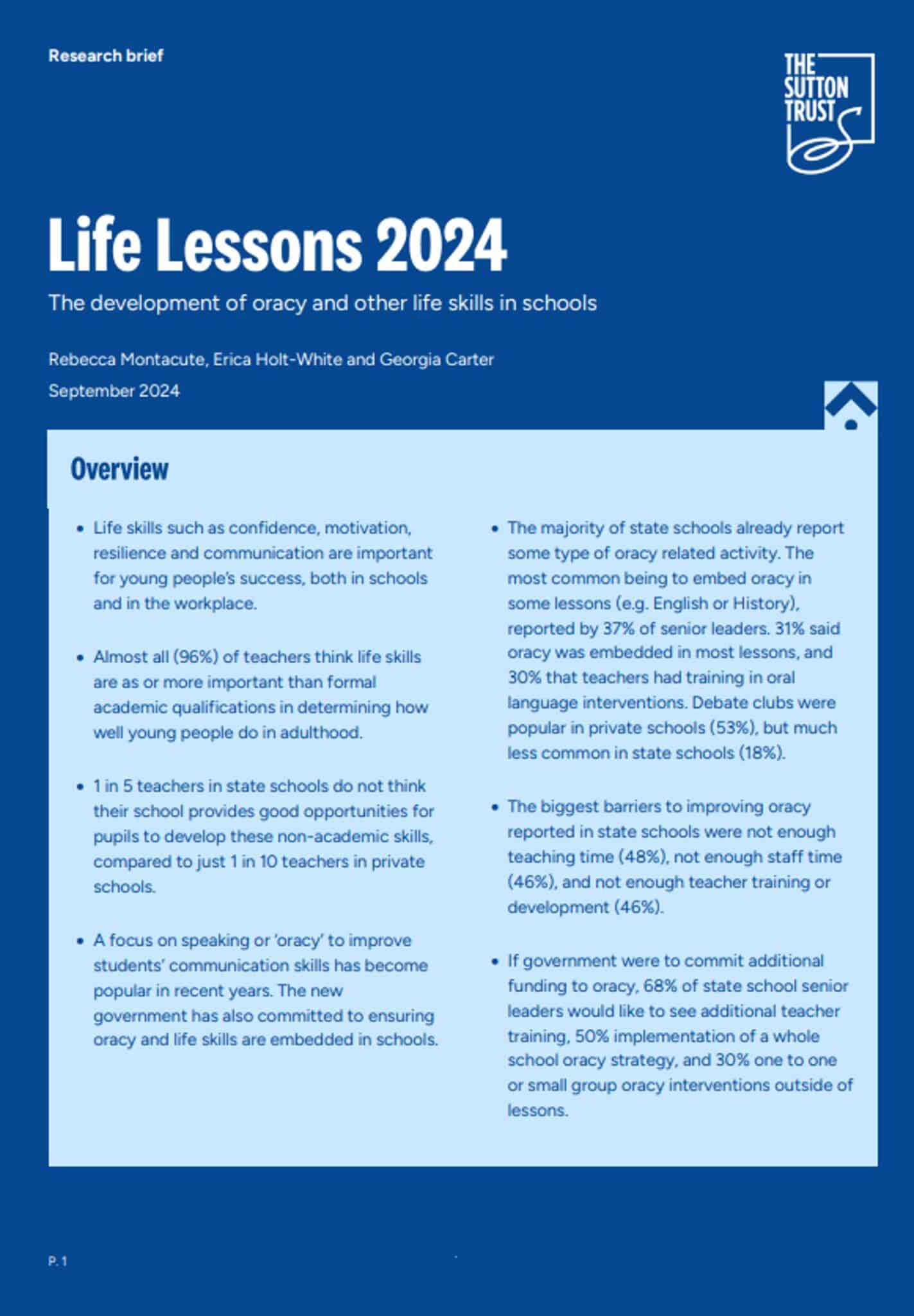While academic and subject-specific skills and knowledge are vital for young people, it is increasingly clear that broader ‘life skills’ – things like communication, resilience, motivation and confidence – are also needed for success, both in education and in the workplace. Of those ‘life skills’, the development of communication skills particularly, and speaking specifically (sometimes termed ‘oracy’), have grown in popularity in recent years. Speaking was also highlighted in Labour’s recent manifesto, and the new government’s curriculum review aims to deliver – “A curriculum that ensures children and young people leave compulsory education ready for life and ready for work, building the knowledge, skills and attributes young people need to thrive. This includes embedding digital, oracy and life skills in their learning”.
This research looks at the views of teachers, on life skills more widely, and on speaking in more detail. It looks at what is being done in schools today, and what teachers would like to see to help them to develop the skills of students further in future. It also includes breakdowns of provision by the deprivation level of schools, as well as differences between state and private schools in delivery.
